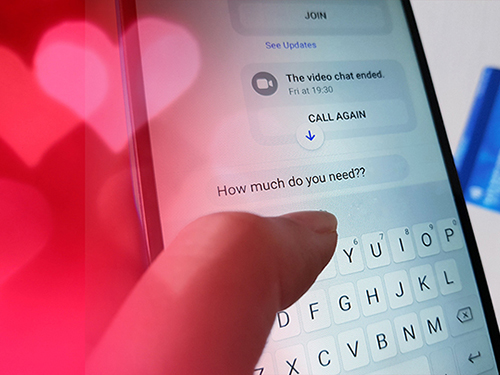Ghanaian social media sensation, Mona Faiz Montrage, also known as Hajia4Reall’s arrest has sparked a move by the public to dig deep into the topic of ‘romance scam’.
Hajia4Reall was extradited to the United States of America (USA) from the United Kingdom UK) over an alleged $2m (£1.6m) romance scam which she pleaded not guilty to all charges according to US prosecutors indicating that the charges against her are only accusations and she is innocent until proven guilty.
As the legal process unfolds, questions of the extent of Hajia4Reall’s alleged involvement and the impact on her alleged victims continue to loom large.
While her defense seeks to challenge the accusations and provide alternative perspectives, the case underscores the pervasive threat of romance scams and the dire consequences they inflict upon unsuspecting individuals.
However, the question is: What are Romance Scams?
What are Romance Scams?

Romance scams involve people being duped into sending money to criminals who go to great lengths to gain their trust and convince them that they are in a genuine relationship.
Usually, scammers take advantage of people looking for romantic partners. They use language to manipulate, persuade and exploit so that requests for money do not raise alarm bells.
The scammers strike up a relationship with you to build up trust, sometimes talking or chatting several times a day. Then, they make up a story and ask for money.
In the year 2021 alone, a jaw-dropping $547 million was reported lost to romance scams in the United States—an alarming 80% increase from the previous year. Yet, these figures represent only a fraction of the true extent of the harm inflicted, as many victims remain silent about their losses, their suffering hidden from public view.
How does this scam work?
Romance scammers often create fake profiles on dating websites and apps or contact you through popular social media sites like Instagram or Facebook. They may use a fictional name, or falsely take on the identities of real, trusted people such as military personnel, aid workers, or professionals working abroad.

These scammers will express strong emotions for you in a relatively short period of time and will suggest you move the relationship away from the website to a more private channel, such as phone, email, or instant messaging.
Scammers will go to great lengths to gain your interest and trust, such as showering you with loving words, sharing ‘personal information’ and even sending you gifts. They may take months to build what may feel like the romance of a lifetime and may even pretend to book flights to visit you, but never actually come.
Once they have gained your trust and your defenses are down, they will ask you for money, gifts, or your banking/credit card details. They may also ask you to send pictures or videos of yourself, possibly of an intimate nature.
Impact on the victims
Romance scam victims tend to be middle-aged, well-educated women with impulsive and addictive dispositions.
Romance scam victims suffer from shame, embarrassment, shock, anger, anxiety, stress, fear, depression, or even suicidal ideation.

Furthermore, victims might experience symptoms resembling major depressive disorder, grief, or post-traumatic disorder (PTSD). Due to embarrassment or fear of disapproval, many victims did not disclose the romance scams to close relatives and friends or seek external support.
Nevertheless, it is advised that romance scam victims should seek professional help once significant functional impairment is noted.
How to protect yourself from this scam
Take it slowly. Ask your potential partner a lot of questions and watch for inconsistencies that might reveal an impostor.
Talk to family and friends about a new love interest and pay attention if they have concerns.
Do a reverse image search of the person’s profile picture. Is it associated with another name or with details that don’t match up? Those are signs of a scam.

Be wary of flirtatious and overly complimentary emails. Paste the text into a search engine and see whether the same words show up on websites devoted to exposing romance scams.
Cut off contact immediately if you begin to suspect that the individual may be a swindler.
Don’t send cash, cryptocurrency, or gift cards or put money on a reloadable debit card for someone you’ve only interacted with online.

Limit the amount of personal information you provide in a dating profile or to someone you’ve chatted with only online. Scammers can exploit details like your last name or where you work to manipulate you or commit identity theft.
Never share intimate photos with an online acquaintance. They could end up being used for sextortion.
















